
views
Organizing Your Time

Prioritize your work. Look at the due date of each assignment, as well as how each assignment is weighted as a part of your final grade. Prioritize those assignments that are due first, as well as the ones that will have the greatest impact on your overall mark in class. If you know a certain assignment will take longer, even if it is not due first, budget time for it when you are creating your schedule. For example, a paper may be due later than a worksheet, but it will likely also take longer, and so should be started sooner.
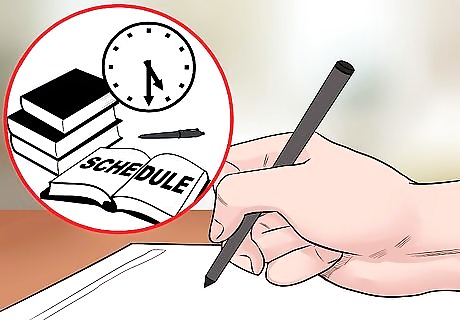
Set a study schedule. You may have a lot going on during the holidays, which is why it is important to make sure you have time set aside every day to study. Create a schedule that fits around your holiday plans, and stick to it as much as possible. Try setting aside consistent times for certain subjects every day. For example, if you know you will have time in the afternoon, set aside a block from 2pm to 4pm to work on your homework. If you need to work on multiple subjects over the holidays, alternate your study time from day to day. You may want to work on your history homework on Mondays and Wednesdays, and your maths work on Tuesdays and Thursdays. Use a personal planner or calendar to mark down your study times, and write what assignments you want to work on for each day.

Set aside non-school time. You may have other plans during your holiday, and it’s important to make sure your study schedule doesn’t interfere with your holiday plans. If you know you will be on vacation, visiting family, or doing something else at certain points during your holiday, reserve those times as special, “no-school” times and leave your books at home. Studying distracted can actually make it more difficult to learn and retain information. When you designate no-study time, it’s important to stick to it so that you don’t miss vital steps or information in your school work.
Setting Up Your Space
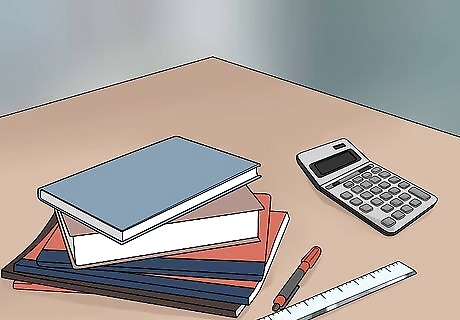
Prepare your materials. Before you leave school for any extended period of time, make sure you have all of the materials you will need to do your work with you. These may include your books, a computer, notebooks, pens, calculators, or any special materials relevant to the subjects you will work on. If you are traveling and you forget something, it may be difficult or expensive to get a replacement on the go. To avoid missing anything, look at each assignment before you leave and make a checklist of what materials you need to complete that assignment. Go through the checklist and make sure you have packed everything you need to take with you before you leave school.
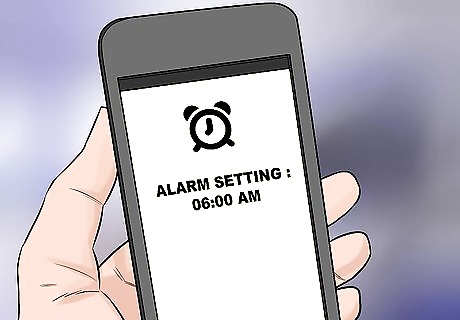
Set an alarm. Set an alarm to wake up and give yourself enough time to do your homework, or set a reminder for later in the day if you plan on doing your homework in the afternoon or evening. Make sure you have a reminder to keep you on schedule and motivated. If you carry a phone or tablet with you regularly, set reminders on your digital calendar so that you get instant notifications. If you use a planner, write reminders down there as well, so that you know what you expect to do and when you expect to do it.
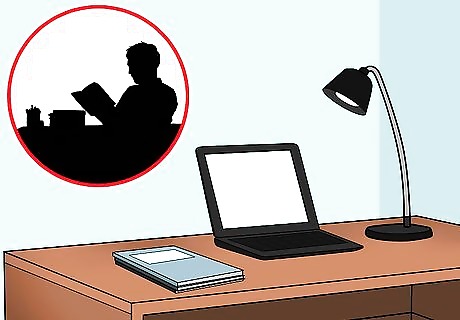
Designate a study space. Set aside a space that is just for you to work on your homework. When the time comes to do your work, sit down there and do not leave until you have finished your work or until your designated study time has ended. Clear your study space of all distractions. If you work at a desk, for example, make sure that only your computer, your notebook, your school books, and materials relevant to your studies are set up. Make the space more comfortable by providing yourself with comfortable seating, good lighting, and accoutrements such a blanket that may help you feel more relaxed in your space.
Working On Your Homework

Get rid of online distractions. If you get distracted studying on your computer, use an app to block online and other computer distractions. Set the app for the amount of time you plan to study, and use it to keep yourself focused. Apps like Freedom and LeechBlock allow users to temporarily block certain sites or set whole blocks of time where the internet is inaccessible. Tools such as FocusWriter and Focus Booster are designed to help you track your time to accomplish specific tasks.
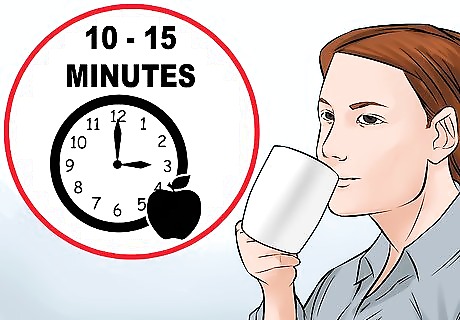
Take breaks. Remember to build breaks into your study time. Avoid overloading yourself or becoming distracted while doing your work by allowing yourself short 10 to 15 minute breaks every hour or so. Taking occasional breaks has been found to improve attention and potentially make your overall studying more effective. Even if you are focused on an assignment, try to include breaks to keep from overworking yourself.
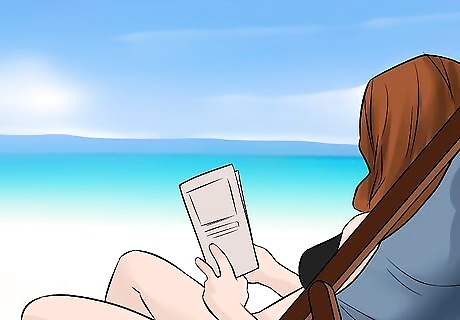
Study on vacation. It is important to have designated spaces and times to study, but if you know you are going to have some lazy beach time or a chance to curl up by the fireplace one afternoon, bring your school books with you. Get comfortable and switch between your school work and personal interests to keep yourself productive but not overwhelmed. Do try to avoid packing schoolwork into times that won’t properly allow you to focus, such as on a tour or during a family get-together. Save the school work for designated study time or your leisure time. Make sure your environment is compatible for the work you need to do. For example, avoid bringing your computer or scientific calculator to a beach setting, which could damage such equipment.
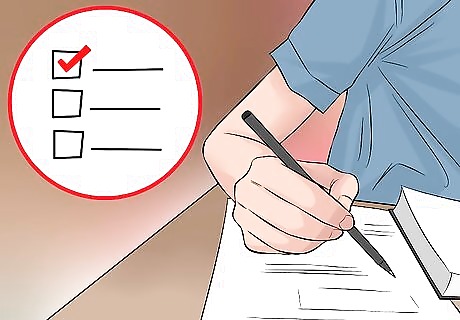
Check your work. Chances are that your holiday included some sort of distraction, so if you have a major assignment due when you get back from your holiday, proofread and check your work to make sure it is accurate. Try to give yourself at least a couple days between completing the assignment and checking the assignment so that you can look at it with fresh eyes. If possible, save any editing for a time when you are not on a trip or dealing with family visits. Find a low-stress point in your holiday where you can go over the work you’ve done thus far. See if any of your peers would be interested in exchanging assignments and peer editing. Arrange it with a friend before you leave school, and set exchange deadlines for the two of you.










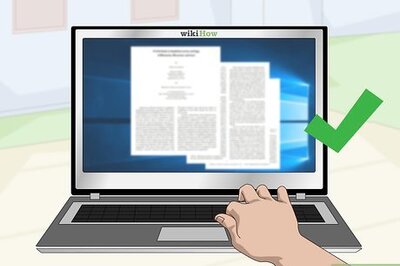





Comments
0 comment